Will anything work to stop the mozzies?
Possibly the most irritating bug on the planet, mosquitos are the one part of summer we all dislike. Just hearing that tell-tale buzz has me reaching for mosquito repellent and hoping I’ll avoid their nasty bite.
If you’re especially susceptible to getting bitten, like I am, you’ll probably have tried multiple repellents, home-remedies and after-bite creams in your quest to soothe your skin. Over the years, I've avoided picnics, days out, barbecues and more because I can't bear the thought of more bites. But does anything actually work? I’ve been testing the best mosquito repellents on the market to find out.
The best mosquito repellents at a glance:
Please note - this article only discusses the annoying, itchy red bites mosquitos leave. It is not intended for those travelling to countries abroad where mosquitoes transmit potentially deadly diseases. For travel advice, including any vaccinations you may need, please check the government website.
Does anything actually work to repel mosquitos?
DEET is the most effective insect repellent and is safe to use on babies (over 2 months old) as well as pregnant and breastfeeding women. The NHS recommends products containing 50% DEET for travel to countries where malaria is an issue. Lower DEET concentration or even none at all doesn’t mean the product doesn’t work, however. Icaridin and some homeopathic remedies can also be very effective. During my testing I found some products worked well on both me and my family, others worked amazingly for one of us, but not others.

Three ways to avoid mosquito bites
Annoyingly, there is no foolproof way to avoid being bitten by mosquitoes and I know, because I’ve tried everything! However, there are things you can do to try and minimise the chances of it happening:
-
Cover up – Wear long-sleeved tops and trousers when mosquitoes are more likely to be active (at dusk, night, and dawn).
-
Ensure your accommodation is protected – When travelling abroad, look for places to stay that have screens on windows and doors and ideally places that have air conditioning so you can keep windows and doors closed. I learned this the hard way in Italy when I opened the windows wide one night and woke up to 28 new bites.
-
Avoid places mosquitoes like – Mosquitoes favour still, fresh water such as lakes and ponds, so avoid these at dusk especially. In contrast, they don’t much like the sea.
And of course, use one of our best mosquito repellent choices, listed below.
Tested
Best mosquito repellent overall
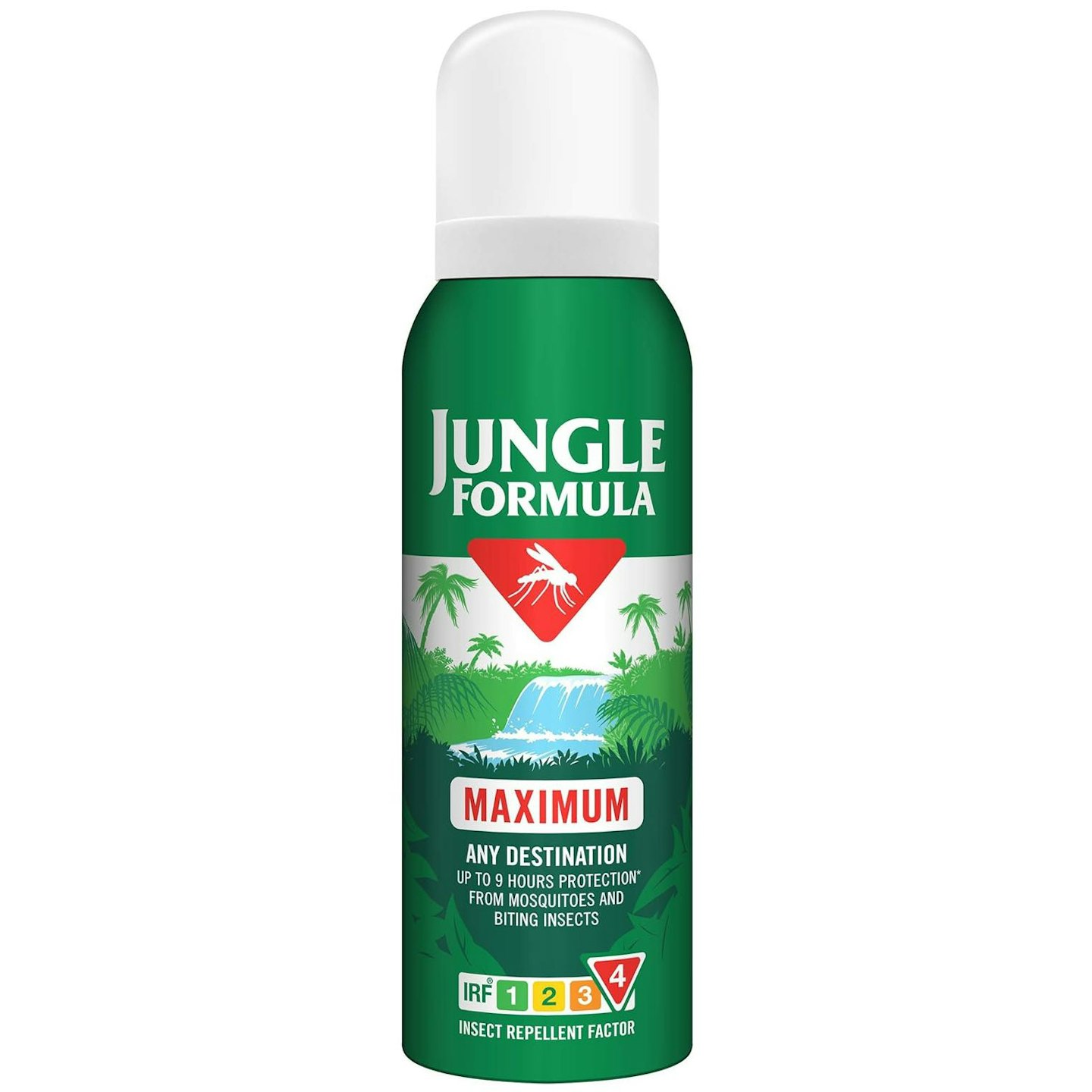 Amazon
AmazonJungle Formula claim to offer up to 9 hours of protection against common mosquitoes with this powerful spray, containing 50% DEET. It also comes in a child-friendly formula, with less DEET. It is an absolutely essential item for taking on holiday - I have used so much of this over the years in hot climes!
My gripe if I have one is that it's an aerosol, but it does come in a roll-on too. I tend to stand outside and douse myself liberally to avoid accidentally spraying furniture, and I also wear a bikini to apply rather than damaging clothing.
The spray isn't too sticky, which is good, and the smell isn't offensive. But to be honest, I'd still buy it regardless, because it works. I wouldn't say it offers a full 9 hours of protection, but it will certainly do 5-6.
In the UK, I don't tend to use Jungle Formula that often unless I'm going to an evening event during the summer months. Then, I tend to spray arms and legs and thankfully avoid being bitten when the mozzies come out.
Pros
- Strong formula that actually works
- Not too sticky
- Offers up to 9 hours protection - I find it best to reapply after 5-6
Cons
- Aerosol spray can be difficult to direct
Tested
Best natural mosquito repellent
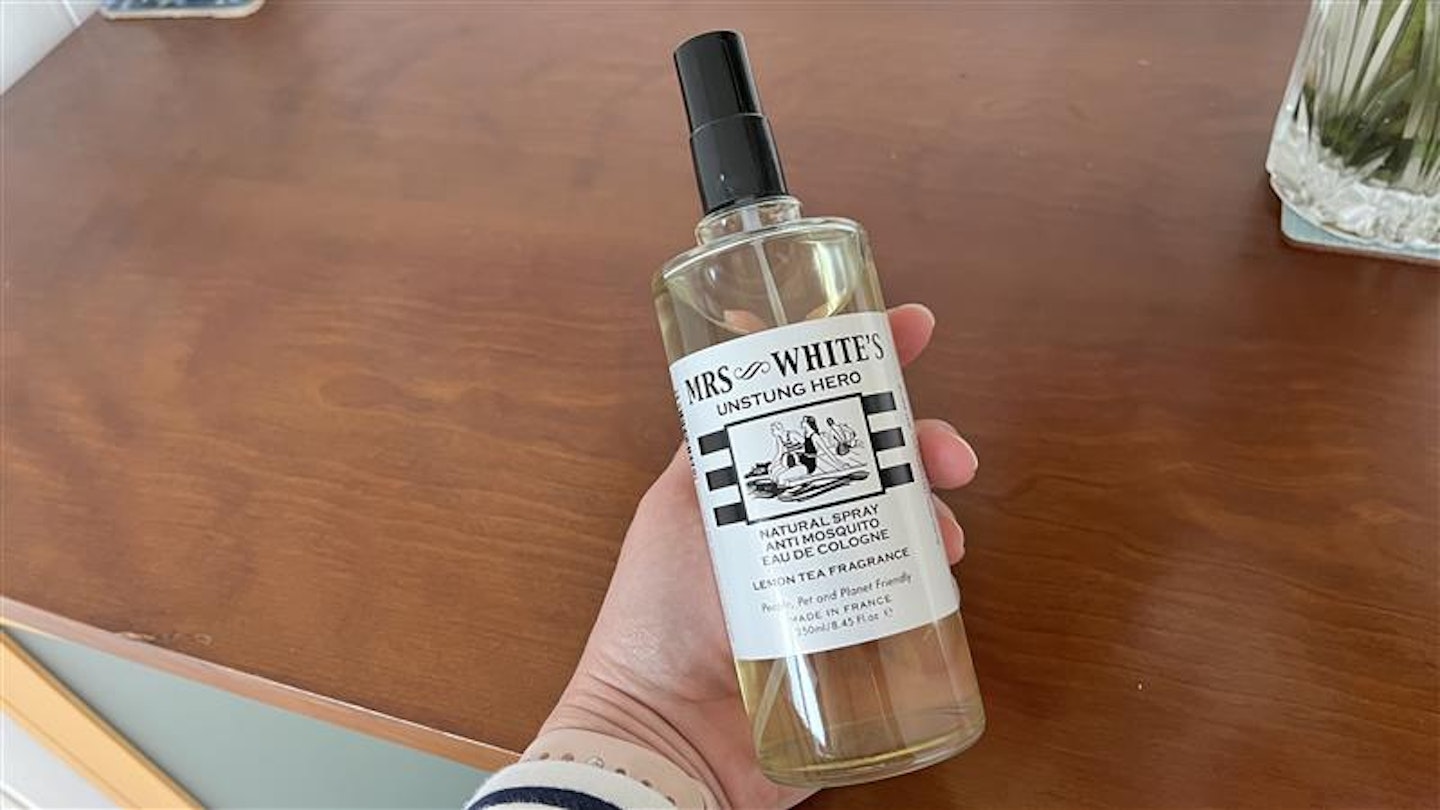 Yours
YoursWhoever Mrs White is, she has my eternal gratitude! This all-natural insect repellent is the first one I've tested that actually works. Normally it's only DEET that works for me. I've been testing this and am delighted with it. Yes, it's quite expensive, but I do believe the price is justified.
It's got a really lovely lemon tea fragrance, so you can smother yourself in it (as I have done) and no one would know you're wearing insect repellent. It's non-sticky, and the spritz bottle makes for easy application. It's also safe to use on linens, clothes, pillows and skin.
Now, full disclosure, I have only tested it in the UK so far, and won't get to test it abroad until next month (and I'll update this accordingly). However, I did wear it during that short hot spell we had a couple of weeks ago. On my normal evening walk by a fairly stagnant river, I often get bitten 6-7 times or more. However, I didn't pick up a single bite in the whole week I wore this.
It also worked really effectively on my son, who got one bite on his ankle and that was it.
You do need to reapply every 4 hours and after swimming, but I'd say that's pretty standard and I'm happy with its longevity. I'd happily recommend this spray.
Pros
- Lovely fragrance - no one will know you're wearing insect repellent!
- Easy to spritz on
- DEET free
Cons
- Faily expensive (though I'd argue its worth every penny)
Best mosquito repellent bracelet
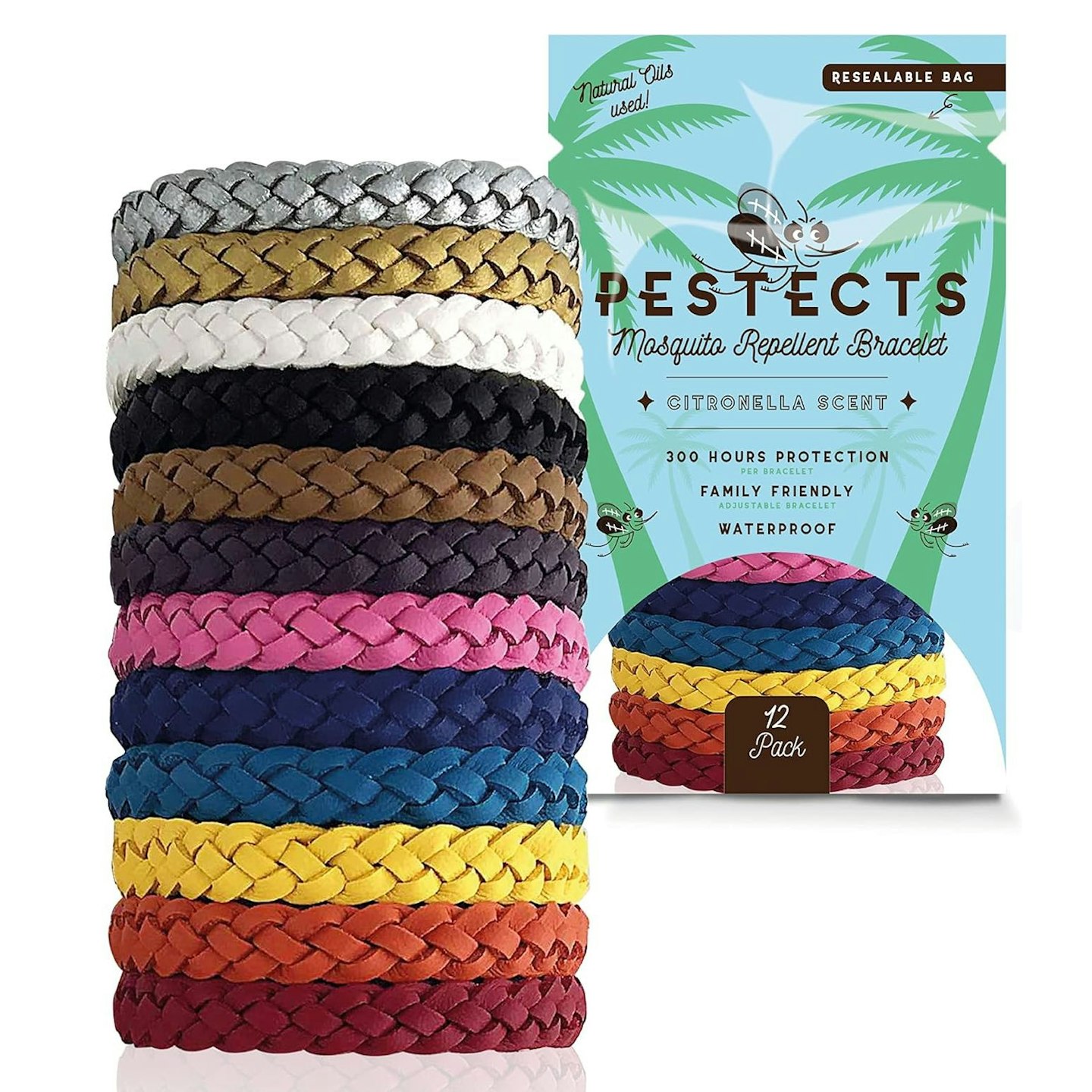 amazon
amazonIf you're looking for a more stylish option than being plastered in insect repellent, these bracelets are well worth a try. They come in a pack of 12, with varying colours, so you can match them to your outfit. They are leather, though, so not suitable for vegans.
They are DEET free, instead being coated in citronella, and it's claimed they offer up to 300 hours of insect repellent. They can be worn on the wrist, ankle, or even attached to a backpack, though we're to sure how effective that would be. It's recommended to store them in the sealed pack when not being used.
Customers mostly feel - as I do - that these are great top up option, to be used in addition to a spray or roll-on repellent. They're fantastic for holiday, easy to pack and they can be worn in the water. However, most people said they needed to change the bands more frequently than advised and their efficacy isn't foolproof.
Pros
- Natural remedy
- Can be changed according to what you're wearing
- DEET free
Cons
- You do need to change them more frequently than advised
- Not suitable for vegans
Tested
Best roll-on mosquito repellent
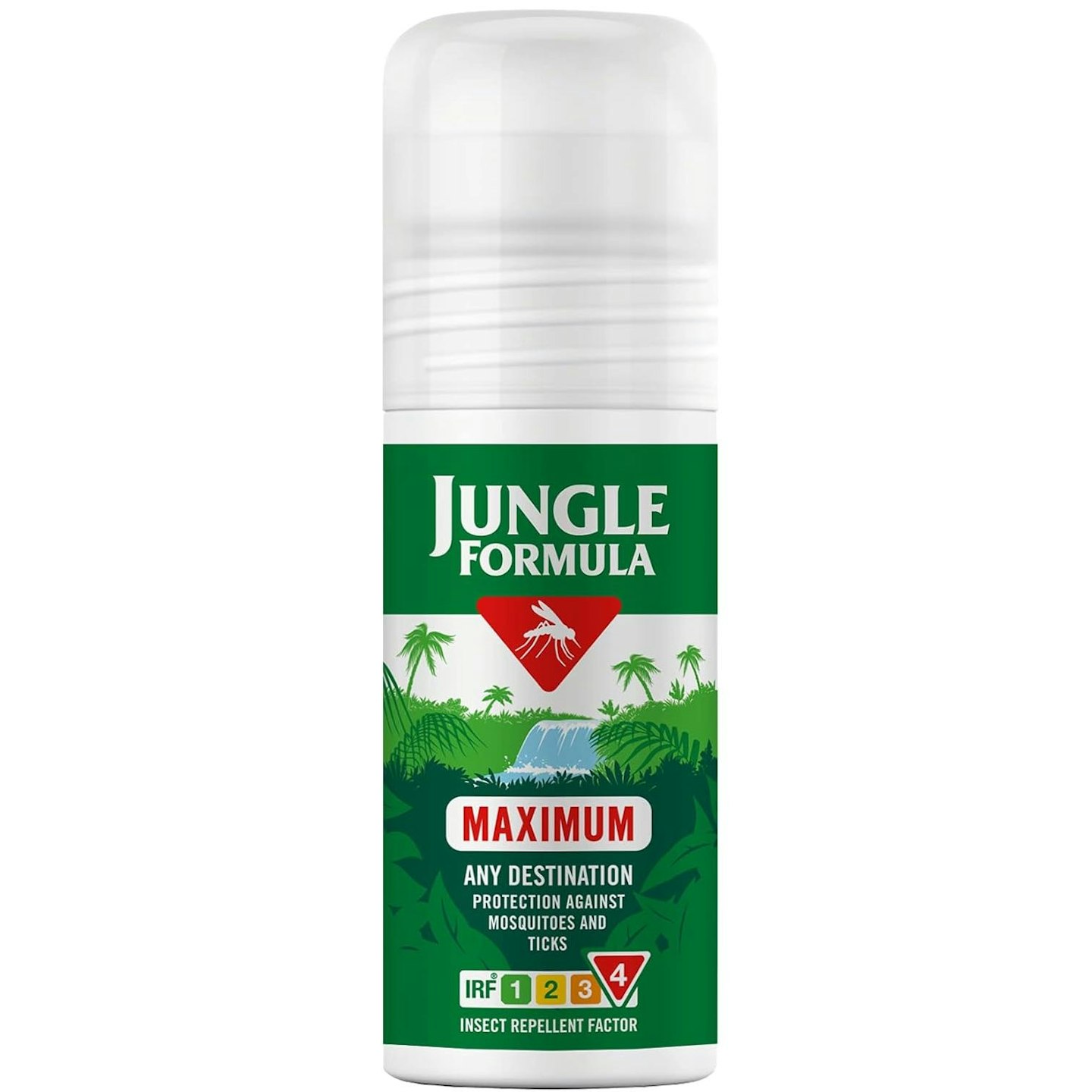 Amazon
Amazon Like its sister spray, tested above, this Jungle roll-on is very powerful, with 50% DEET. It's easier overall to apply as it's in a a roll-on form, but I did find when applying it to my teenage son that it's harder to cover areas like ankles and kneed with a roll-on.
However, my kids prefer it to the spray, and formula wise there's nothing in it. I'd use this abroad agains as I have done in the past, but in the UK I'd opt for the natural Mrs White's spray, tested above.
Pros
- Easier to apply than its spray alternative
- Powerful and deters mosquitoes well
- Not sticky
Cons
- Hard to get full coverage
Best mosquito repellent cream
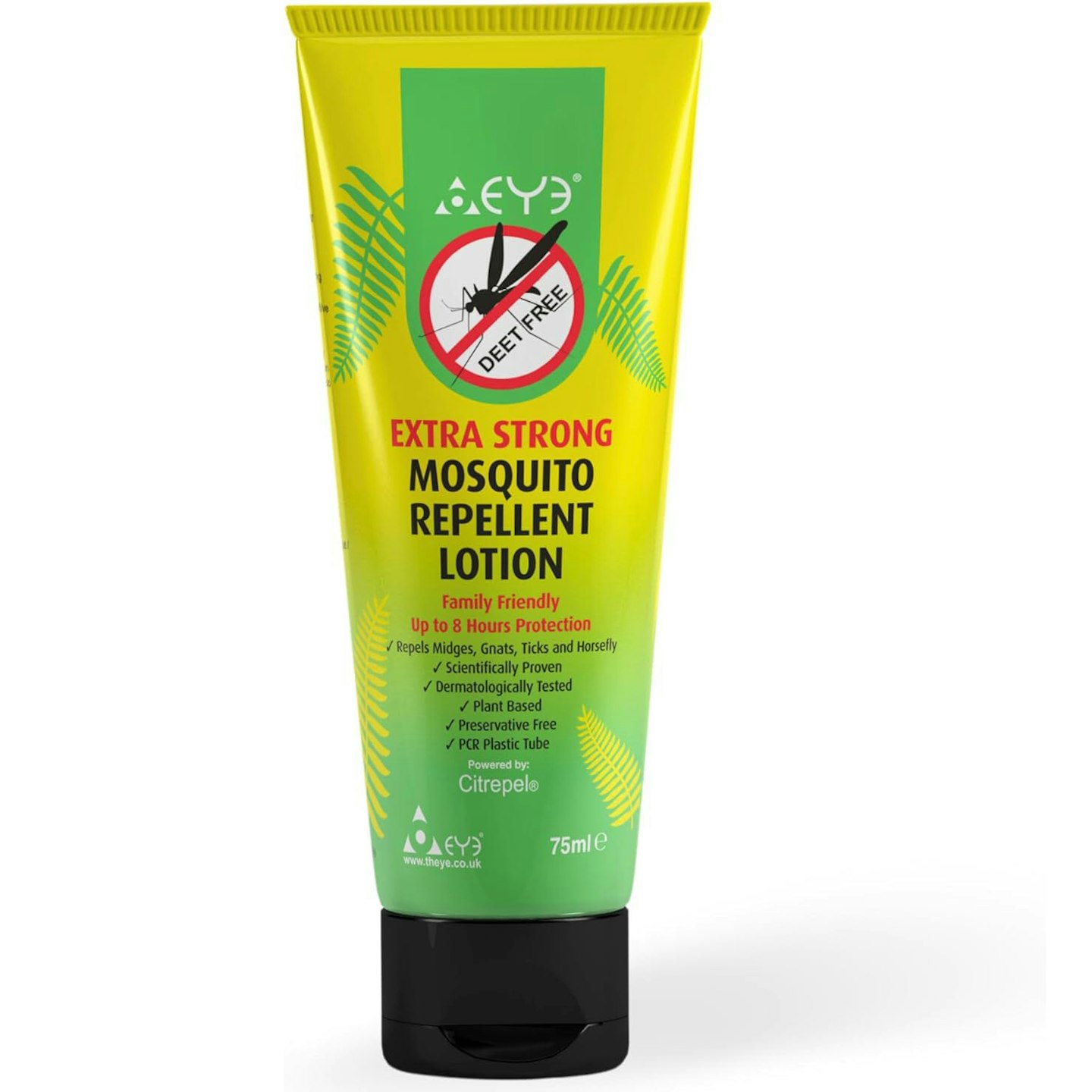 Amazon
Amazon This mosquito cream is DEET free, but it promises that it’s powerful and long lasting. Personally, I’d rather use DEET free products if possible, and I know many people prefer a cream. Conversely, many prefer applying insect repellent in a different format, and THEYE also sell wipes, a pump spray, an aerosol and even a mosquito repellent bracelet.
I find cream easier to apply on myself but a nightmare to apply on my youngest son, especially if he’s already had to stand patiently for sun cream to be applied (he is 14 and should know how to keep still but can’t). So, if you have young energetic grandchildren or children, you might like to opt for a different format.
However, customers do praise the efficacy of the product and while some like the smell (citronella), others have said it’s too overpowering.
Pros
- Natural, DEET free formula
- Suitable for children from 6 months and pregnant women
- Comes in many other formats - wipes, spray, and a band
Cons
- Cream formula may not be everyone's preference - especially if applying on wriggly children!
Bes aerosol mosquito repellent
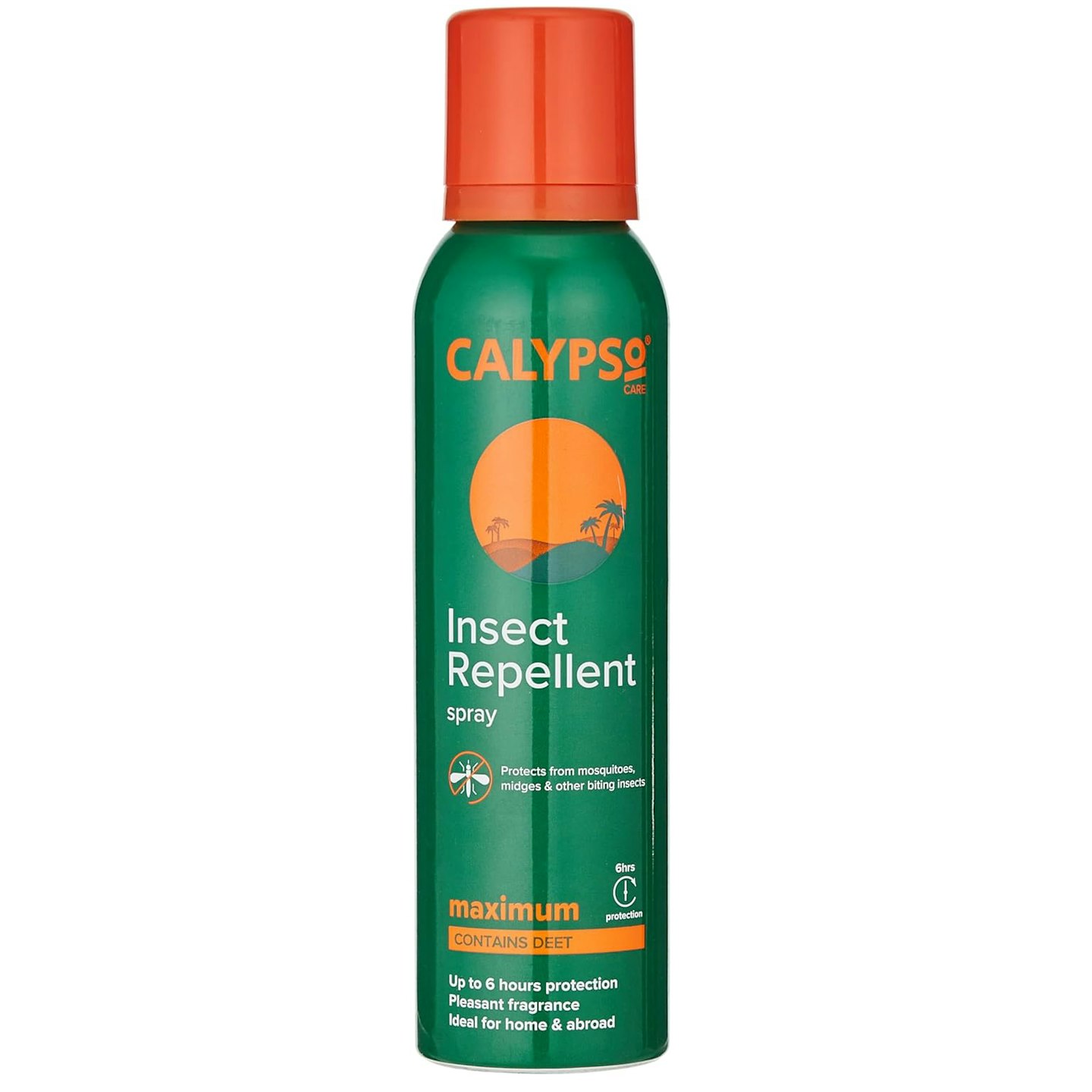 Amazon
AmazonCalypso are synonymous with sun tan cream, but this DEET containing mosquito spray is another holiday must-have. It offers up to 8-hours protection (though I’d reapply sooner than that) and is suitable for mozzies at home or abroad.
Like most DEET sprays, it works well, but a lot of customers would disagree with the ‘pleasant fragrance’ claim from the brand. However, if you’re after an aerosol that’s easy to use and not too fussed about smelling of DEET, this is a good option, with thousands of positive reviews from people relieves they’re not getting bitten.
Pros
- Large aerosol spray bottle
- Effective, DEET formula
Cons
- Doesn't smell very pleasant
Tested
Best soothing balm for mosquito bites
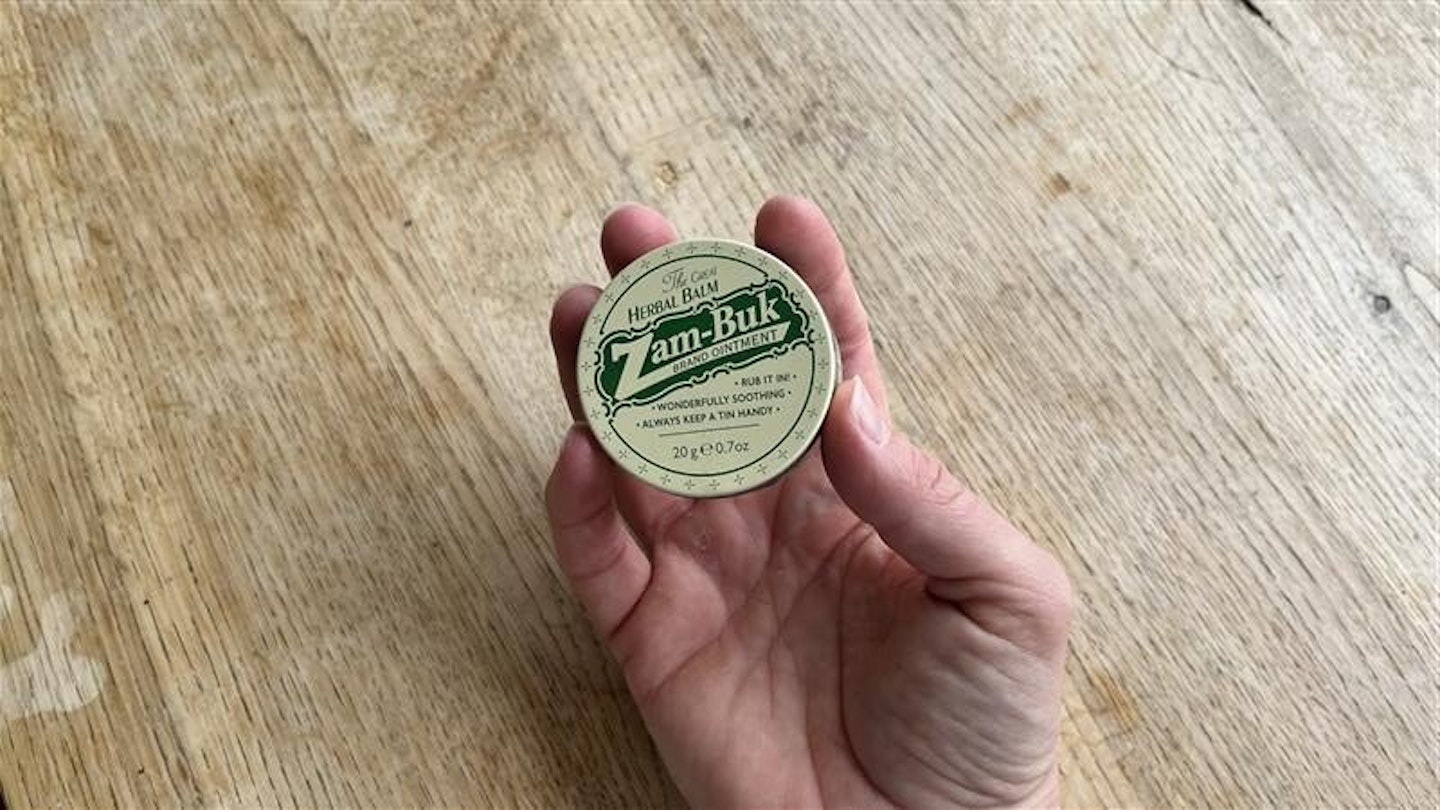 Yours
YoursMy grandma always carried Zam-Buk in her bag, and my mum still does. I have childhood memories of running to them with any kind of scrape, sting or bite and having it rubbed on, so I was delighted to find out it’s still being made, and it is still doing a wonderful job as a sooth-all balm.
It smells (in my opinion) lovely – though I’m not sure if that’s because it makes me nostalgic! Still, it’s a herbal smell rather than a medicinal one.
The balm comes in a small tin so you can easily pop it in your bag and take it with you. The lid can be difficult to get off, particularly if you have wet or greasy hands, but the balm itself is easy to apply. It might feel greasy initially but that soon goes. Don’t be put off by the colour either (it’s dark green) as it goes on clear.
I don’t know how it works, but its healing properties are great at soothing bites – and pretty much anything else. In the last few weeks, I’ve used it on a bite on my son, on his scraped knees, on a torn callous on my hand, to stop chaffing on thighs, as a lip balm, and on nettle rash. It’s so reasonably priced, and so versatile, I’d highly recommend getting some.
Pros
- Great for soothing pretty much anything - bites, scrapes, stings etc
- Pleasant fragrance
- Handy handbag size tin
Cons
- Can feel slightly greasy initially
Tested
Best soothing mosquito bite cream
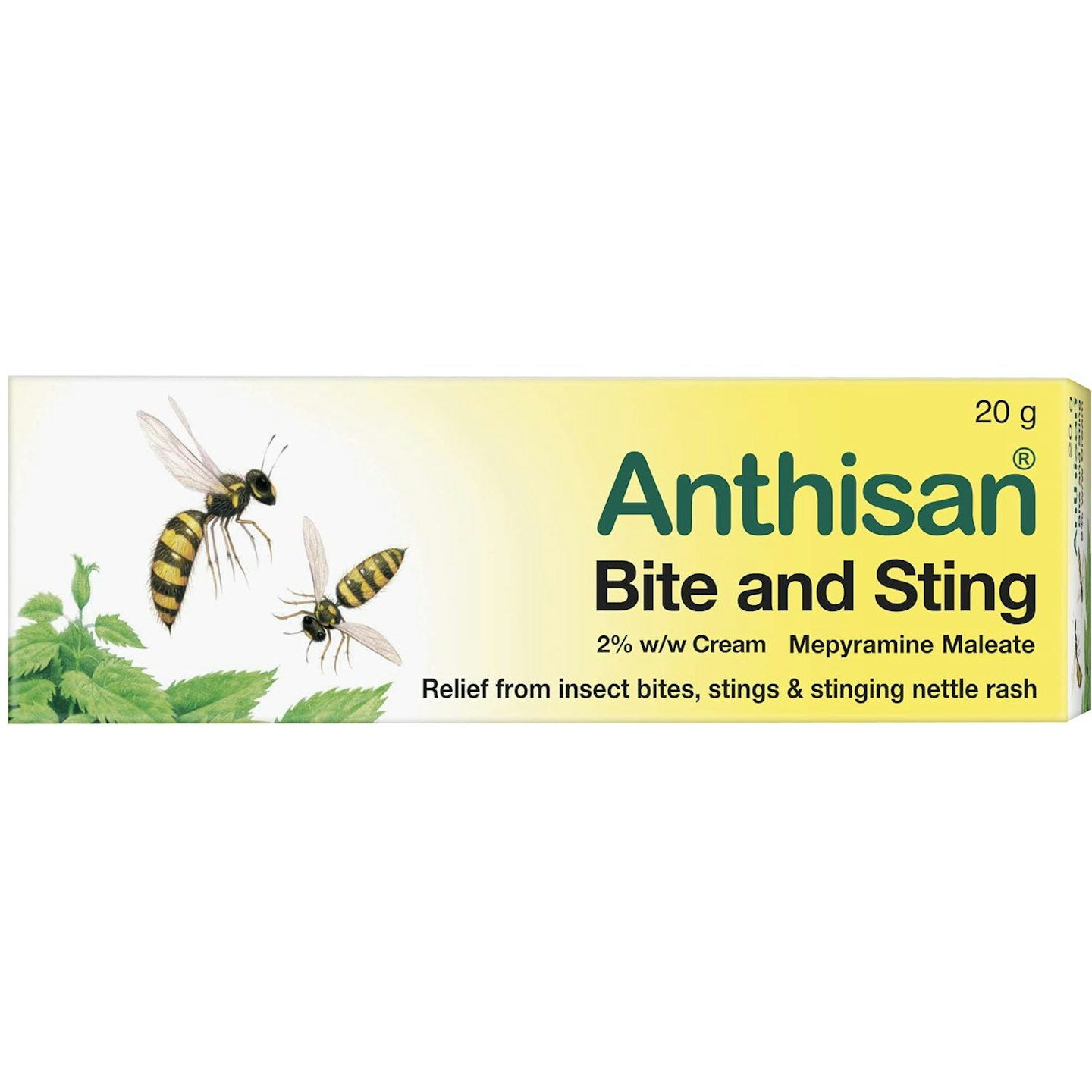 Boots
Boots www.boots.com
Anthisan is my saviour, and yet when I recommend it to people not many seem to have heard of it. If you’re heading abroad this summer, I urge you to grab a tube of this and keep it close by in case you do get bitten.
I have been using it for years as it’s the only cream that stops my itching and soothes the skin. I’ll be honest – it’s fairly thick and white, and it has a strong medicinal smell. But to be honest, if I’ve been bitten, I’m past caring and I’ll take the white splotches on my skin and the strange smell just for some relief. Like Zam-Buk, it’s really reasonably priced, and it works.
Pros
- Works brilliantly at soothing bites
- Good valuer
Cons
- Strong medicinal smell
What is the best mosquito repellent that actually works?
For me and my family, and it seems for many others as well, the best mosquito repellent that actually works is the Jungle Formula Maximum repellent. However, I don’t want to use that day-to-day because of the high concentration of DEET. Instead, I’d opt for Mrs White’s Unstung Heroes, on account of it being DEET and chemical free. It also smells lovely, so people won’t know I’m covered in insect repellent!
What is the best thing to stop mosquitos biting you?
Insect repellent is the only real way to stop bites from happening. You might hear people claiming that tea tree oil works or taking vitamin B1 or B12 supplements. Bath oils, skin softeners, drinking alcohol or even eating garlic or yeast extract are all methods people claim will stop you being bitten, but while they might help slightly, they’re not tried and tested and there are no reputable studies to back these claims up.
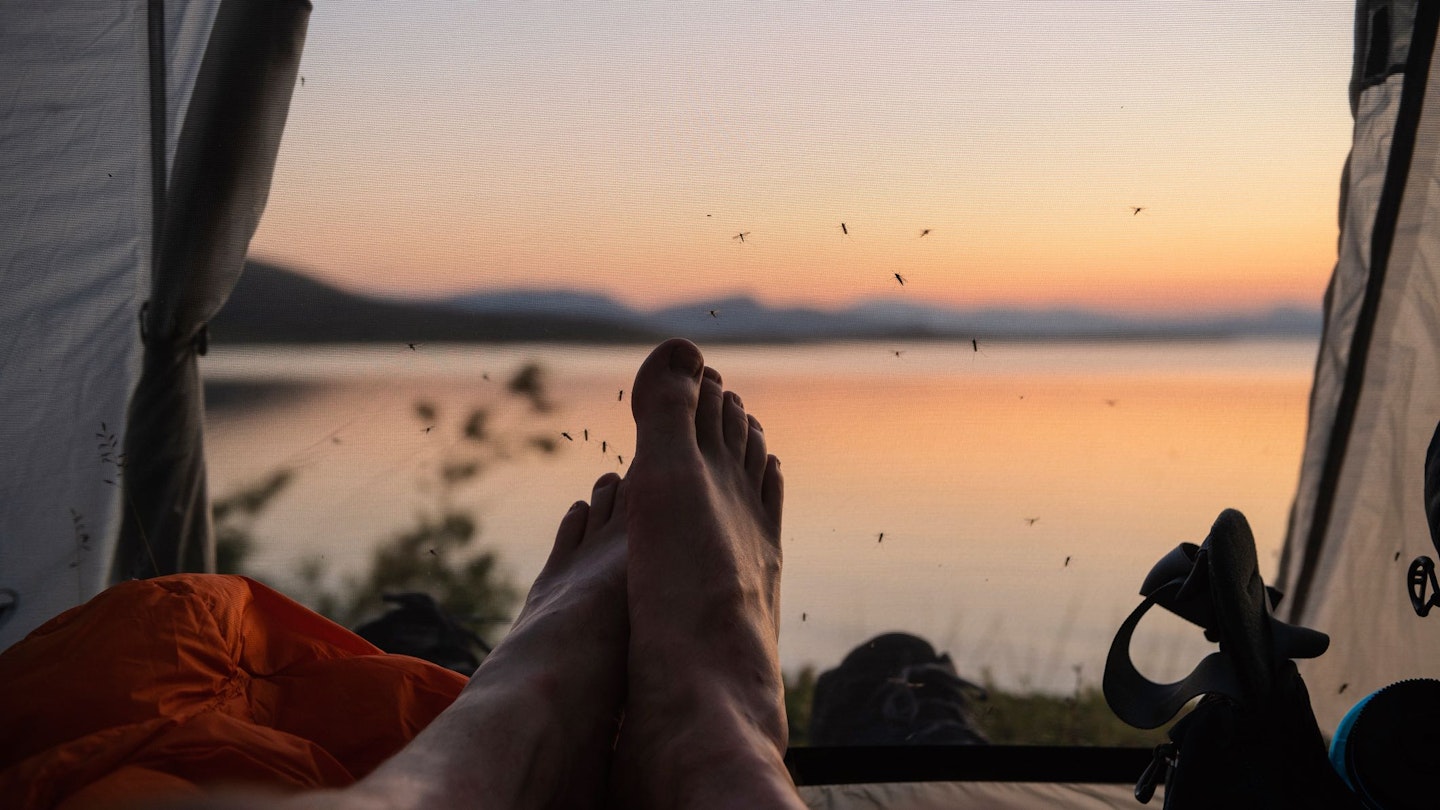
How to apply insect repellent
-
Be sure to apply it to all areas of the skin not covered by clothing.
-
Apply after sunscreen.
-
Reapply regularly, especially after swimming or if you’re sweating a lot.
-
Be careful around the face and eyes – spray the repellent onto your hands and then apply to the face.
What to do before travelling
For up to date and accurate travel information, including what vaccinations you’ll need, visit the government website. The NHS also has travel advice which can keep you safe from dangerous mosquito bites. If you’re travelling to a country where you may be at risk form malaria, yellow-fever or other diseases, please check whether mosquito nets are provided in your accommodation or if you need to buy one.
Becky Fuller is a senior digital writer for Yours.co.uk. She is also a fully qualified personal trainer and strength coach, specialising in fitness and wellbeing for over 50s. Prior to joining Yours, Becky was a fitness writer for Saga, and a freelance entertainment and theatre journalist. Becky is passionate about helping people to move well and discover the many benefits of strength training.
